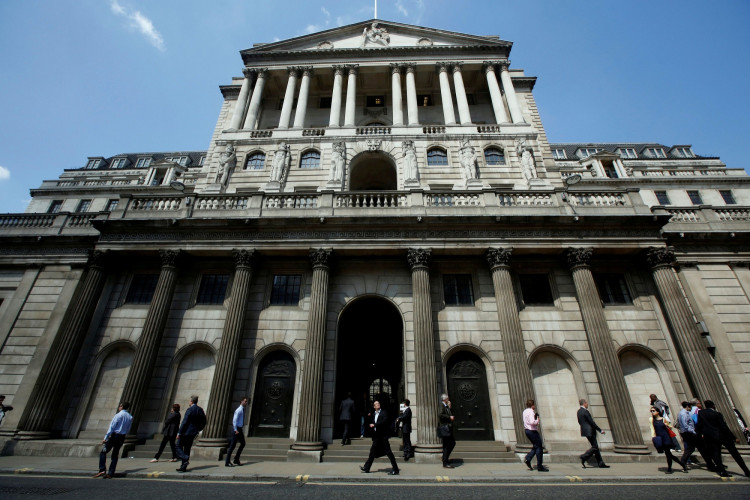The Bank of England (BoE) cut interest rates by 25 basis points on Thursday, reducing its key rate to 4.75%, a move widely anticipated as the central bank contends with a complex economic outlook shaped by the U.K.'s new budget and lingering inflationary pressures. The decision by the BoE's Monetary Policy Committee (MPC), which passed with an 8-1 vote, reflects a cautious easing strategy aimed at balancing inflation control and economic growth in light of recent fiscal policies.
BoE Governor Andrew Bailey emphasized the need for a measured approach to interest rate cuts to ensure inflation remains close to the central bank's 2% target. "Monetary policy will need to remain restrictive for sufficiently long until the risks to inflation returning sustainably to the 2% target over the medium term have dissipated further," Bailey stated. He noted that while economic conditions warrant gradual easing, the recent budget announcement by Finance Minister Rachel Reeves has complicated the policy trajectory.
Reeves' budget, unveiled last week, introduces significant tax hikes and spending increases, boosting near-term economic growth but also raising inflationary risks. The BoE revised its inflation forecast upwards, predicting a peak increase of 0.5 percentage points to approximately 2.75% next year, before eventually returning to the target level. Growth projections were also adjusted, with the economy expected to expand by roughly 0.75% over the next year, largely driven by government spending initiatives.
Catherine Mann, the lone dissenting MPC member, preferred to keep rates unchanged, underscoring the diversity of views within the central bank on the appropriate pace of easing. The BoE's cautious stance on further rate cuts mirrors concerns about inflationary pressures stemming from the budget's impact on the cost of living, including increases in bus fares, value-added tax on private school fees, and higher employers' social security contributions. The central bank also highlighted potential ripple effects from a 6.7% hike in the national minimum wage, which could lead to rising business costs.
Suren Thiru, economics director at the Institute of Chartered Accountants in England and Wales (ICAEW), warned that "upward pressure on inflation from the budget and growing global risks, including potential new U.S. tariffs, could mean that policy is loosened more modestly than many anticipated." Financial markets have tempered expectations of aggressive rate cuts in response to these fiscal and geopolitical uncertainties.
The BoE's revised forecasts indicate inflation rising to 2.5% by the end of this year from 1.7% in September and peaking at 2.7% by the end of next year. While the central bank anticipates inflation will gradually fall below its 2% target within three years, the path forward remains uncertain, particularly given the budget's implications for market borrowing costs and economic stability.
Bailey and the MPC's cautious messaging aligns with market expectations that the BoE will proceed more slowly with rate cuts compared to the European Central Bank, reflecting a broader trend of monetary tightening among central banks globally. The recent U.S. presidential election, which saw Donald Trump return to office, has also influenced market dynamics, reducing bets on aggressive Federal Reserve rate cuts and contributing to heightened global economic uncertainty.
The BoE's next steps will depend on how fiscal and economic conditions evolve in the coming months. Economists are closely watching for signs of inflationary pressures easing and the extent to which government spending and tax measures influence the broader economic outlook. As Bailey reiterated, "If the economy evolves as we expect, it's likely that interest rates will continue to fall gradually from here."




